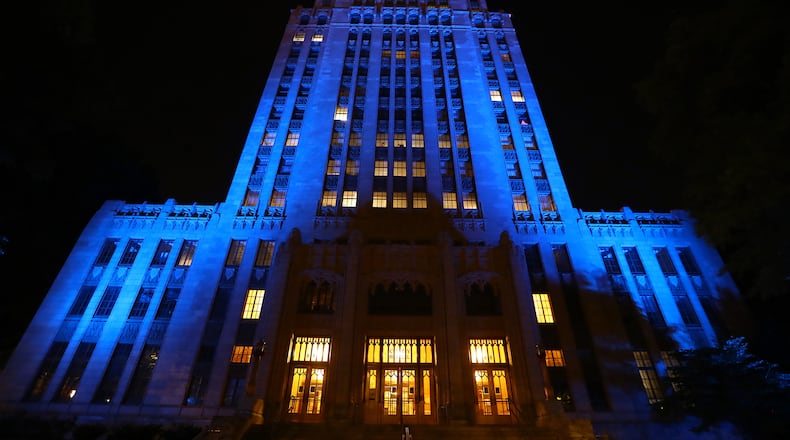The Atlanta City Council passed a $673 million general fund budget last weekend that contained no tax increases or employee layoffs, despite a projected $58 million revenue shortfall due to COVID-19.
The spending plan included a recommendation by Mayor Keisha Lance Bottoms’ administration to reduce approximately $40 million in expenses through abolishing vacant positions, freezing recruitment for non-critical positions and stripping out almost all new discretionary spending. It also draws down $37 million in city reserves and funds previously promised raises for police officers, firefighters and the newly created Office of Inspector General.
But the budget leaves many questions unanswered — and did not receive unanimous support from the council.
Council members Jennifer Ide and Antonio Brown cast dissenting votes after the failure of an amendment that would have sequestered one-third of the police department's $217 million operational budget. Withholding the $73 million from the department until next year was meant to provide the council with leverage as the city deals with the issue of police reform.
The budget hearing stretched over two days as the council heard from hundreds of citizens urging the city to reform policing, demilitarize the department and spend some of that money on social services.
There have been mass demonstrations across the country since George Floyd's death in late May at the hands of Minneapolis Police, and Atlanta protesters were enraged when an Atlanta police officer shot Rayshard Brooks as he attempted to flee during a DUI arrest on June 12.
A handful of council members also expressed frustration about the lack of information provided by the administration.
Ide, chair of the council’s Finance Executive Committee, said during Saturday’s meeting she repeatedly asked for specific figures in the police department’s budget.
“I’m trying to get a straight answer from the finance department, and to some extent the law department, on numbers that I’m entitled to as member of the city council,” Ide said. “And I’m at the end of my rope on treatment that I’ve gotten.”
Also, Bottoms has announced plans to eventually close the city’s jail — an action that Council President Felicia Moore said would still require legislative approval.
The budget passed on Saturday moved nearly 200 corrections employees under the mayor’s constituent services department, reducing the corrections budget from $18 million to $3 million. However, it wasn’t clear to the council what jobs the former corrections employees would perform.
“The money was just moved to another department,” Council President Felicia Moore said.
A Bottoms spokesman didn’t immediately respond to a question Tuesday seeking clarification on that point.
The budget also allocated $2.1 million for the new Office of Inspector General, which city officials hope will help root out corruption and stifle any future attempts by the state to take over the airport.
Moore said adopting the budget was the first step in a long process and adjustments would likely need to be made as the COVID-19 crisis continues.
“A budget can be amended at any time,” she said.
About the Author
Keep Reading
The Latest
Featured



